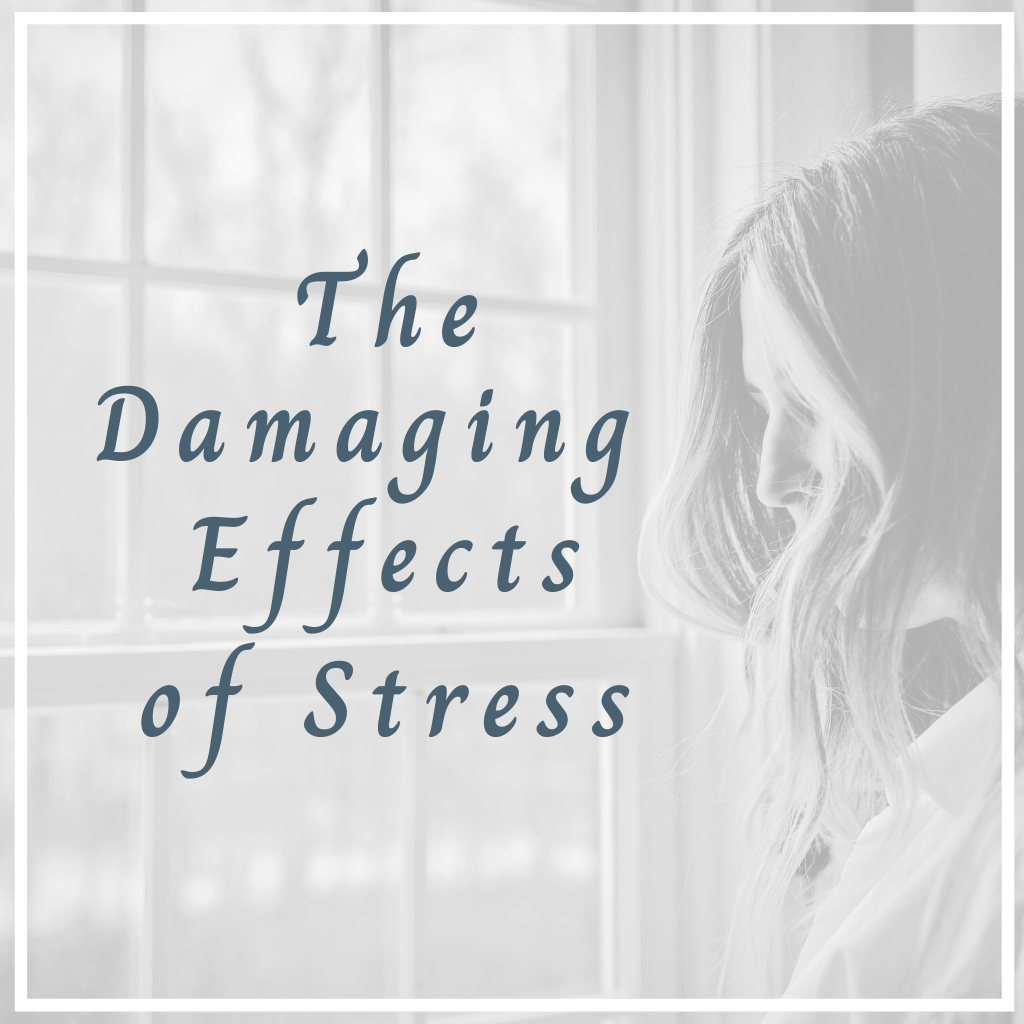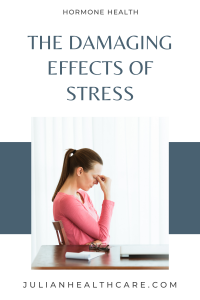The prolonged stress and emotions from going through a natural disaster, such as the current pandemic, can have major impacts on our bodies and minds. Research has shown from past natural disasters, that natural disasters cause increased rates of depression and suicide, PTSD, and also substance abuse. A big part of how that begins is in a tiny part of our brain called the amygdala.
The amygdala is in the center of the brain, hooked onto the end of our hippocampus, which is another area where we store memory. It’s responsible for emotion-based memories. It’s an important part of our brain because if we are being chased by bad guys, we store that memory in our amygdala and the next time we see bad guys, we know that we need to avoid them. That’s a normal healthy response of our amygdala. But when that gets on overdrive, then all these other things that we are going to discuss can happen.
The Anatomy and Physiology of the Stress Response
When we experience stress, we then see the effects on our hypothalamic pituitary adrenal (HPA) axis and that affects the immune system and all other systems in the body. The HPA axis sends hormone signals to the adrenal glands (tiny almond-shaped glands that sit on our kidneys and are responsible for producing hormones such as epinephrine, norepinephrine, and cortisol, plus many others) and to the ovaries or testes and it tells them what to do with their hormones. This whole loop talks to each other. The brain tells the glands what to do based on how many of those hormones that we have.
When a stress response happens, we increase our epinephrine (AKA adrenaline) and cortisol, and then our brain tells that gland, “hey, we have plenty of that, you guys need to back off, don’t make so much” – that’s what’s called a negative feedback loop. That negative feedback loop helps protect us from our hormone levels getting too high. When the stress response loop gets out of balance is when negative things start happening to our body.
When the negative feedback loop continues on chronically, the brain tells the glands “hey, calm down, we don’t need that much cortisol” then the adrenal glands are like “okay, I hear you” and they stop making as much cortisol. At that point, you can flatline and your body can begin to have problems because of too little cortisol. Low cortisol decreases the immune system, it makes us more susceptible to autoimmune conditions, and it can do a number of other negative things to our body as well.
High Cortisol
When the adrenal glands produce more cortisol, which in turn produces more norepinephrine and epinephrine (adrenaline), it also decreases our GABA. GABA is a feel-good neurotransmitter that makes us feel good and relaxed. As GABA goes down, we can feel things such as melancholic depression. It’s usually accompanied by anxiety, panic, and that feeling of being stressed out. We may wake up just feeling overwhelmed. That can cause us to hop right out of bed without taking any time for ourselves and that’s usually what starts the big cycle throughout the rest of the day.
Some other symptoms of high cortisol include:
- Always being on guard and looking for something else to happen.
- Feelings of unrest.
- Aggression and irritability.
- Insomnia – trouble falling asleep or staying asleep.
- Gastrointestinal problems, such as more incidences of IBS.
High cortisol can increase the permeability of the small intestine. The small intestinal lining has tiny holes that let things get through it, like our food. But when we get stressed, the adrenaline goes to our intestines and makes those holes bigger. So things that should never get through to our bloodstream, get through and this causes inflammation throughout our whole system, as well as many other problems. High adrenaline also changes our microbiota, the bacterial makeup of our intestines. Some of the good guys can be killed off, which can cause the bad bacteria to grow. It can also put us at risk for cardiovascular disease (high blood pressure, cholesterol, heart attacks, increased inflammation, strokes). Metabolic diseases, such as prediabetes and diabetes, are another result of high cortisol. These are just a few of the effects that high cortisol has on our bodies.
Low Cortisol
Low cortisol, epinephrine, norepinephrine, and GABA are hormones that produce things like mood disorders. That can include PTSD, seasonal affective disorder, depression, burnout, and decreased resiliency. And resiliency basically just means that we just go with the flow, whatever comes at us, we can just go with. It is kind of like a tree limb, it bends and shakes in the storm but doesn’t break. We tend to start losing resiliency when we have low cortisol, which can cause an endless cycle if we don’t intervene.
Low cortisol causes us to be more prone to infections, including cancers. Prostate and breast cancer have an earlier onset in people who have low cortisol levels. Overwhelming fatigue is also a major symptom. It’s that “I have got to lie down right now” type of fatigue. It can also cause metabolic problems, such as high or low blood sugar. The brain and memory are also affected when your cortisol is low and it leads to brain fog. It can cause the reproductive system to be decreased and out of whack, as well.
Testing
Testing all of these hormones can be a little bit tricky. Cortisol, norepinephrine, epinephrine are all hormones so they do a dance with the rest of our hormones. So think about your thyroid hormones, insulin, and of course your sex hormones. If one of them is out of balance, it’s going to throw the whole dance off. One of my favorite tests to do for hormones is by Precision Analytical. It’s called DUTCH (dried urine test for comprehensive hormones). You put a little bit of your urine on a blotter sheet of paper. It tests cortisol as well as sex hormones. There is also a saliva test that can test your cortisol curve throughout the day. I love this test because it really shows us the big picture of how the hormones are all working. Give us a call if you are interested in learning more about testing your hormones!
Stress Happens
Stress is a normal part of life, with or without a natural disaster going on. In order to stop it from negatively affecting your body and mind, you have to understand how your body reacts to it. This article is just a brief look into how the stress response in your body works and the impact it can have on you. For a more in-depth look at the stress response as well as my favorite techniques and tools to manage stress and anxiety, sign up for my free 3-part video series: Fear, Anxiety, & the Stress Response. After you watch the series, you’ll walk away with a better understanding of how your body responds to stress as well as the many things you can do on a daily basis to help balance your cortisol levels!
Schedule a discovery call with Susan to see if Julian Healthcare is a good fit for you.
Susan Julian, NP, IFMCP
***Since publishing this article, we have added another post that outlines 3 simple techniques that you can implement to help manage your cortisol levels. Check it out here!





